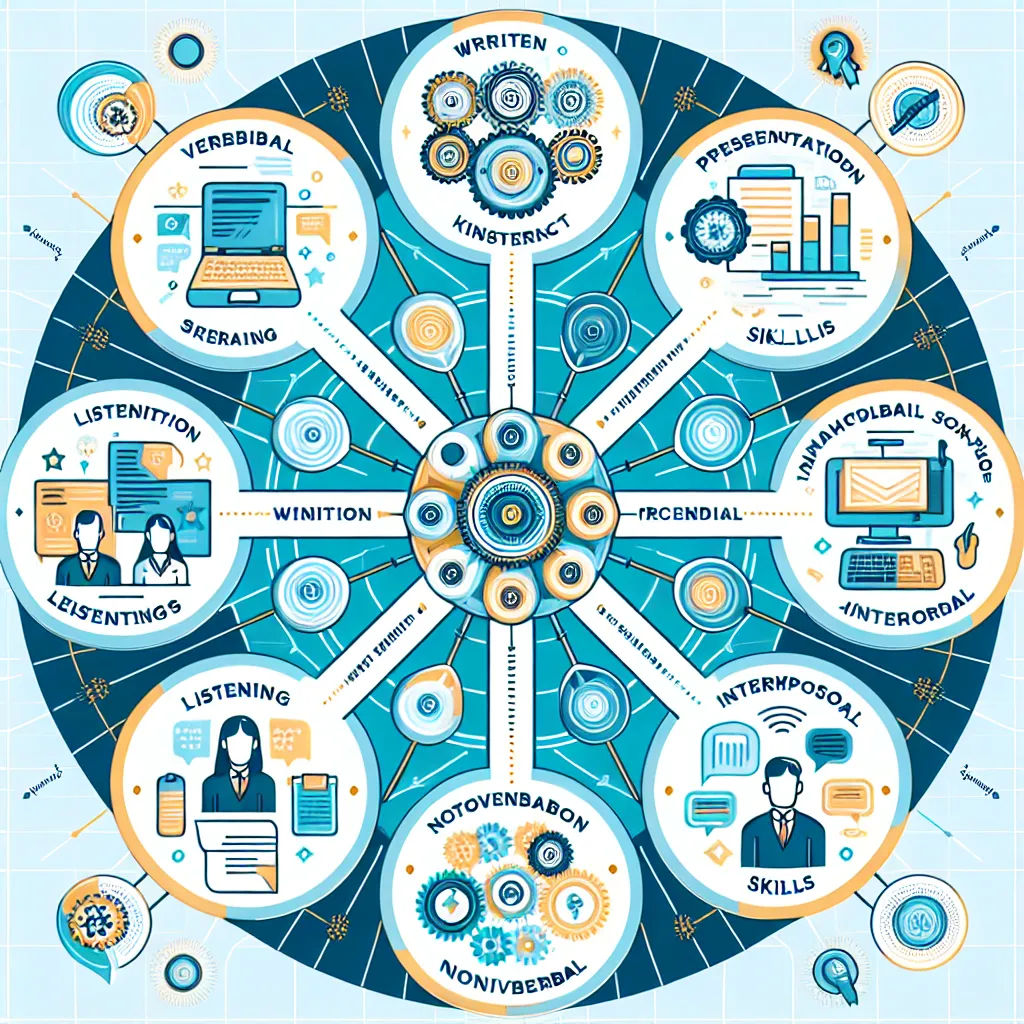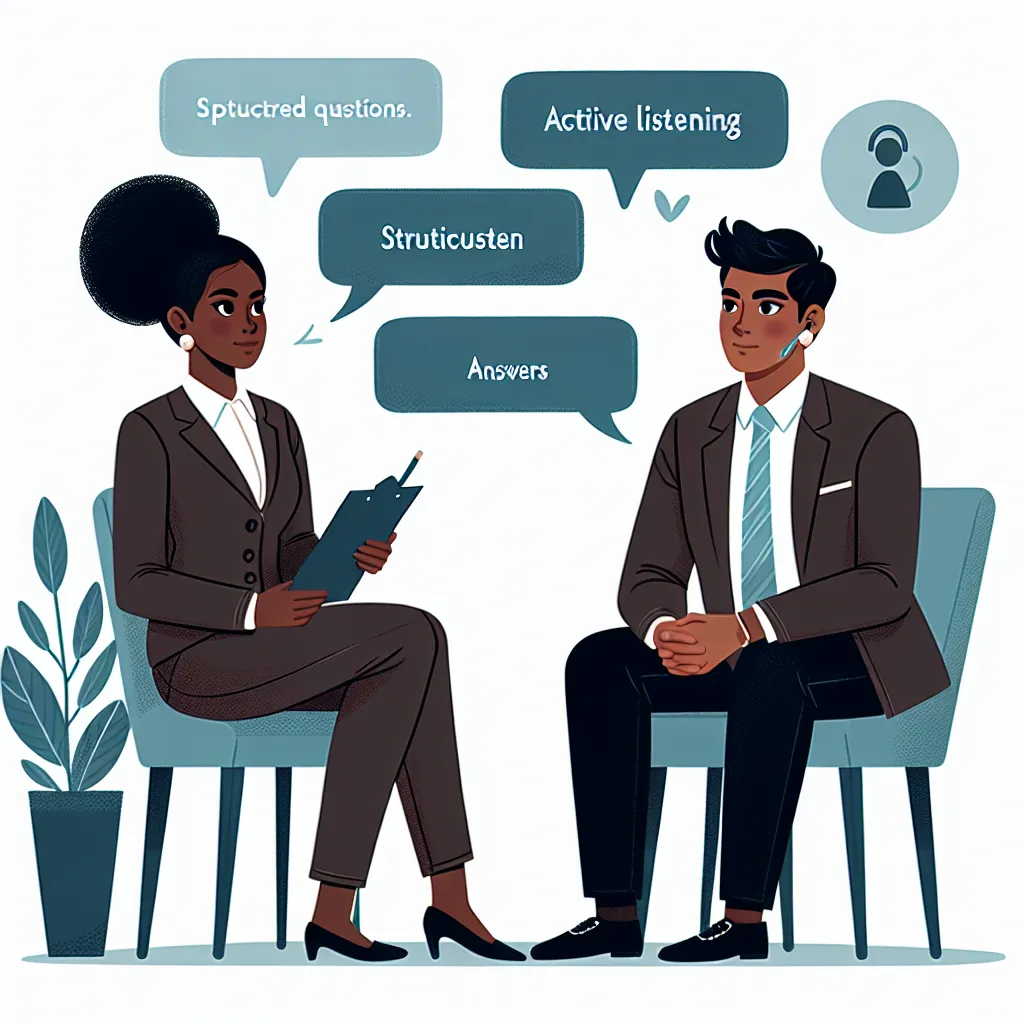Effective communication skills are crucial in the workplace, and employers often seek candidates who can articulate their abilities confidently. Whether you’re a native English speaker or using it as a second language, knowing how to discuss your communication skills during an interview can significantly impact your chances of landing the job. This guide will help you navigate this important aspect of the interview process with ease and confidence.
Understanding the Importance of Communication Skills
Communication skills are essential in virtually every job role. They encompass a wide range of abilities, including:
- Verbal communication
- Written communication
- Active listening
- Presentation skills
- Nonverbal communication
- Interpersonal skills
Employers value these skills because they contribute to a harmonious work environment, improved productivity, and better relationships with clients and colleagues.
 Communication Skills Diagram
Communication Skills Diagram
How Interviewers Assess Communication Skills
During an interview, recruiters evaluate your communication skills through various means:
- Your ability to articulate responses clearly
- The structure and coherence of your answers
- Your body language and eye contact
- How well you listen and respond to questions
- Your use of professional language and terminology
Common Interview Questions About Communication Skills
Be prepared to answer questions that directly address your communication abilities. Here are some examples with sample responses:
-
“How would you describe your communication style?”
Sample answer: “I would describe my communication style as clear, concise, and adaptive. I believe in tailoring my approach to the audience and situation. For instance, when explaining technical concepts to non-technical team members, I use analogies and simple language to ensure understanding. In written communication, I focus on structure and clarity to convey information effectively.”
-
“Can you give an example of a time when you had to explain a complex idea to someone?”
Sample answer: “Certainly. In my previous role as a project manager, I had to explain the benefits of adopting a new project management software to a team that was resistant to change. I prepared a presentation that highlighted the software’s features using real-world scenarios from our daily work. I also organized a Q&A session to address concerns. By breaking down the complex features into relatable benefits, I was able to gain buy-in from the team, resulting in a smooth transition to the new system.”
-
“How do you ensure that your message is understood correctly?”
Sample answer: “I believe in the importance of active listening and feedback. After explaining something, I often ask clarifying questions to ensure the message was received as intended. I also encourage others to paraphrase what I’ve said in their own words. This approach helps identify any misunderstandings immediately. Additionally, for important communications, I follow up with written summaries or action points to reinforce the message.”
Tips for Discussing Your Communication Skills
When talking about your communication skills, keep these tips in mind:
-
Use specific examples: Provide concrete instances where your communication skills made a positive impact.
-
Highlight diverse skills: Discuss various aspects of communication, such as writing, speaking, and listening.
-
Quantify results when possible: If your communication skills led to measurable outcomes, mention them.
-
Demonstrate adaptability: Show how you adjust your communication style for different audiences or situations.
-
Emphasize continuous improvement: Mention any courses or training you’ve undertaken to enhance your communication skills.
 Interview Communication
Interview Communication
Common Mistakes to Avoid
When discussing your communication skills, be wary of these pitfalls:
-
Being too vague: Avoid generic statements like “I’m a good communicator.” Always provide specific examples.
-
Overlooking non-verbal communication: Remember that your body language and tone are also being assessed during the interview.
-
Ignoring listening skills: Communication is a two-way street. Demonstrate your ability to listen and understand throughout the interview.
-
Underestimating written communication: In today’s digital workplace, written communication is crucial. Be prepared to discuss your writing skills as well.
-
Failing to adapt: Show awareness that different situations require different communication approaches.
Follow-up Questions and Suggested Responses
Interviewers may ask follow-up questions to delve deeper into your communication skills. Here are some examples with suggested responses:
-
“How do you handle communication in a team with diverse backgrounds?”
Suggested response: “I approach diverse teams with cultural sensitivity and openness. I make an effort to understand different communication styles and preferences. For instance, in a previous international project, I learned that some team members preferred direct communication while others valued more context. I adjusted my style accordingly and encouraged the team to discuss these differences openly, which led to more effective collaboration.”
-
“Describe a situation where you had to deliver bad news. How did you handle it?”
Suggested response: “When our company had to delay a product launch, I was responsible for informing our key clients. I prepared thoroughly, outlining the reasons for the delay and our mitigation plan. I scheduled individual calls with each client, allowing time for questions and concerns. By being transparent, empathetic, and solution-focused, we maintained positive relationships despite the setback.”
-
“How do you ensure effective communication in remote work settings?”
Suggested response: “In remote settings, I emphasize clear, frequent, and structured communication. I utilize various tools like video conferencing for face-to-face interactions, project management software for task tracking, and instant messaging for quick queries. I also advocate for regular check-ins and virtual team-building activities to maintain strong connections. Additionally, I’m meticulous about documenting discussions and decisions to ensure everyone stays aligned.”
-
“Can you discuss a time when you had to persuade someone to see things from your perspective?”
Suggested response: “In a previous role, I needed to convince our marketing team to adopt a new content strategy. I prepared a comprehensive presentation with data-driven insights and case studies. I also anticipated potential objections and prepared counterarguments. During the meeting, I actively listened to concerns and addressed them thoughtfully. By combining solid evidence with empathy for their perspective, I successfully gained their support for the new strategy.”
-
“How do you handle miscommunication or conflicts arising from poor communication?”
Suggested response: “When miscommunication occurs, I believe in addressing it promptly and directly. First, I try to identify the source of the misunderstanding. Then, I facilitate an open discussion where all parties can express their views. I focus on finding common ground and establishing clear, agreed-upon communication protocols moving forward. For instance, after a misunderstanding with a colleague about project deadlines, we implemented a shared calendar system and weekly check-ins, which significantly reduced future miscommunications.”
By preparing thoughtful responses to these questions and following the tips provided, you’ll be well-equipped to showcase your communication skills effectively during your interview. Remember, the interview itself is a demonstration of your communication abilities, so stay confident, clear, and engaged throughout the process.
For more interview preparation tips, you might find these resources helpful:
- How to Talk About Your Previous Job in an Interview
- How to Discuss Your Experience in Managing Conflicts
- English Phrases for Interviews
Good luck with your interview!




